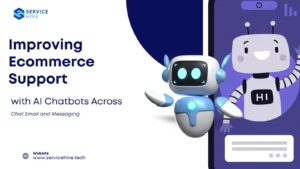
Improving Ecommerce Support with AI Chatbots Across Chat Email and Messaging
Improving Ecommerce Support with AI Chatbots Across Chat Email and Messaging Introduction If you run an ecommerce business today you
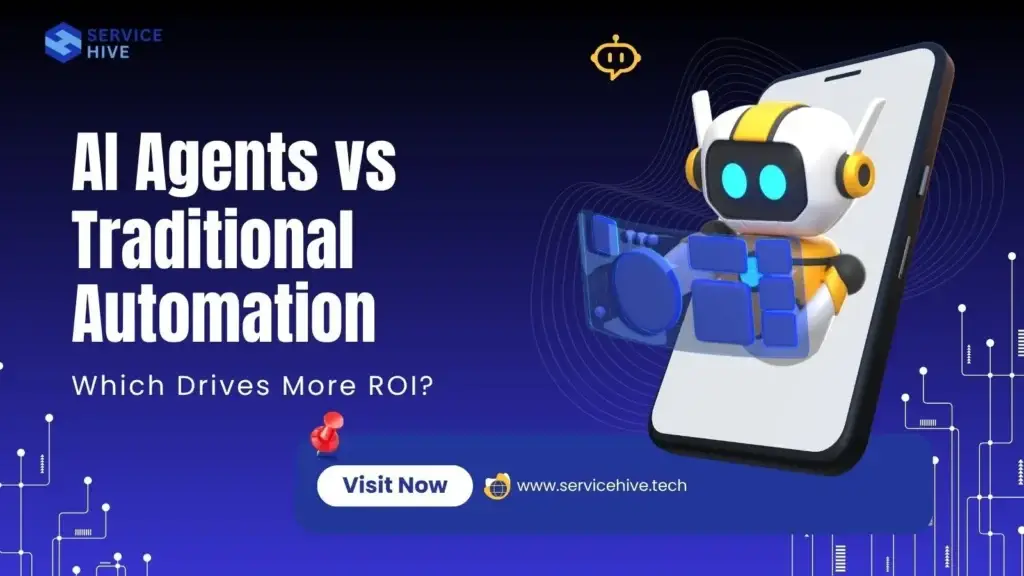
Table of Contents
Introduction: The Changing Face of Business Automation
Automation has been the foundation of digital transformation for decades. From workflow bots to ERP systems, businesses have long relied on rule-based systems to save time and reduce manual work.
But as industries evolve, so do the challenges. Static, rule-driven systems can no longer keep up with the complex, dynamic, and data-rich environments of modern enterprises.
That’s where AI Agents come in — intelligent systems capable of reasoning, learning, and adapting to context. They represent the next stage of automation — one that doesn’t just execute rules but makes decisions based on goals and real-time data.
External Reference: According to Gartner (2024), businesses adopting AI-driven automation achieve 30–50% higher process efficiency compared to traditional systems.
Understanding Traditional Automation
Traditional automation works on predefined rules. It’s ideal for repetitive tasks that follow a clear structure, such as:
While effective, traditional automation lacks adaptability. When a process changes or exceptions occur, it often requires human intervention or manual reprogramming.
This rigidity limits scalability, especially for growing organizations that deal with unstructured data or unpredictable workflows.
What Are AI Agents and How They Work
AI Agents represent a leap beyond conventional automation. They don’t just follow commands — they interpret, learn, and improve outcomes autonomously.
An AI Agent can:
In simple terms, AI Agents bring human-like reasoning to automation. They analyse data, predict results, and take proactive action — without needing explicit instructions for every scenario.
External Reference: MIT Sloan Review (2024) notes that organizations using AI Agents in operations see 40% faster decision-making compared to rule-based systems.
Key Differences: AI Agents vs Traditional Automation
Aspect | Traditional Automation | AI Agents |
Core Function | Executes pre-defined rules | Learns and adapts dynamically |
Flexibility | Limited — requires reprogramming | Self-adjusting based on data |
Intelligence | Reactive | Proactive and context-aware |
Scalability | Linear growth | Exponential adaptability |
Maintenance | High (manual updates) | Low (continuous learning) |
Decision-Making | Pre-set logic | AI-driven reasoning |
ROI Potential | Moderate | High and compounding |
AI Agents not only automate workflows but also optimize decisions — turning automation into a living, evolving ecosystem.
ROI Comparison: Why AI Agents Deliver More Value
While both automation types aim for efficiency, AI Agents drive superior ROI through:
For instance, a manufacturing client working with Service Hive reduced process delays by 42% within three months after transitioning from RPA to AI Agent-driven workflows.
Real-World Business Impact of AI Agents
Across industries, the impact of AI Agents is evident:
External Reference: Accenture Research (2025) found that AI-driven organizations experience 2.5x higher ROI on automation investments compared to traditional systems.
Why Businesses Choose Service Hive for AI Integration
At Service Hive, we specialize in designing, developing, and deploying custom AI Agent solutions that fit your unique business challenges.
Our expertise covers:
We don’t deliver generic automation — we deliver intelligent systems that learn, adapt, and scale with your business.
To explore how AI Agents can transform your operations, visit our AI Automation Services page.
FAQs
Q1. Can AI Agents replace traditional automation completely?
Not immediately. Both can coexist — AI Agents enhance existing automation by adding intelligence and adaptability.
Q2. Are AI Agents expensive to implement?
While the initial setup may require investment, the long-term ROI — through efficiency gains and reduced maintenance — far outweighs the cost.
Q3. How does Service Hive ensure data security in AI systems?
All our AI solutions follow strict data compliance protocols (GDPR, HIPAA) and include encrypted processing to maintain privacy.
Q4. Which industries benefit most from AI Agents?
Manufacturing, logistics, retail, and healthcare have shown the fastest adoption and most measurable ROI improvements.
Q5. Do AI Agents require ongoing training?
They continuously learn from data, but Service Hive also provides ongoing optimization support to maximize their impact.
Conclusion
The choice between AI Agents and traditional automation isn’t just about technology — it’s about how your business evolves.
Traditional automation helps you operate faster.
AI Agents help you think smarter.
At Service Hive, we empower businesses to move beyond static workflows and embrace intelligent, adaptive automation that drives measurable ROI.
Ready to see what AI Agents can do for your organization?
Visit Service Hive to explore how we can design an automation strategy built for the future.

Improving Ecommerce Support with AI Chatbots Across Chat Email and Messaging Introduction If you run an ecommerce business today you
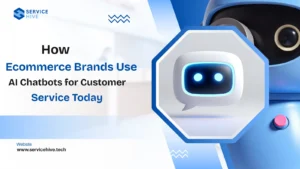
How Ecommerce Brands Use AI Chatbots for Customer Service Today If you run or manage an ecommerce brand today you
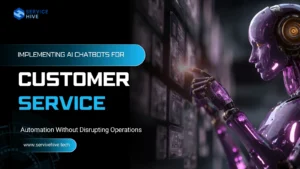
Implementing AI Chatbots for Customer Service Automation Without Disrupting Operations If you are a business owner or founder, chances are
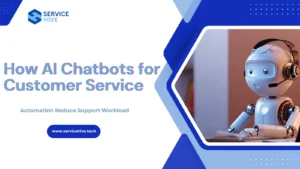
How AI Chatbots for Customer Service Automation Reduce Support Workload Introduction If you are a founder or operations lead, customer
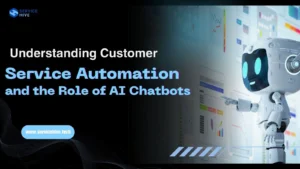
Understanding Customer Service Automation and the Role of AI Chatbots introduction If you are a business owner or founder, you
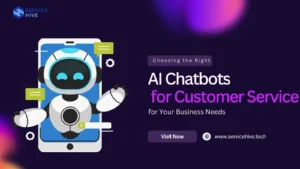
Choosing the Right AI Chatbots for Customer Service for Your Business Needs Introduction If you run a growing business today